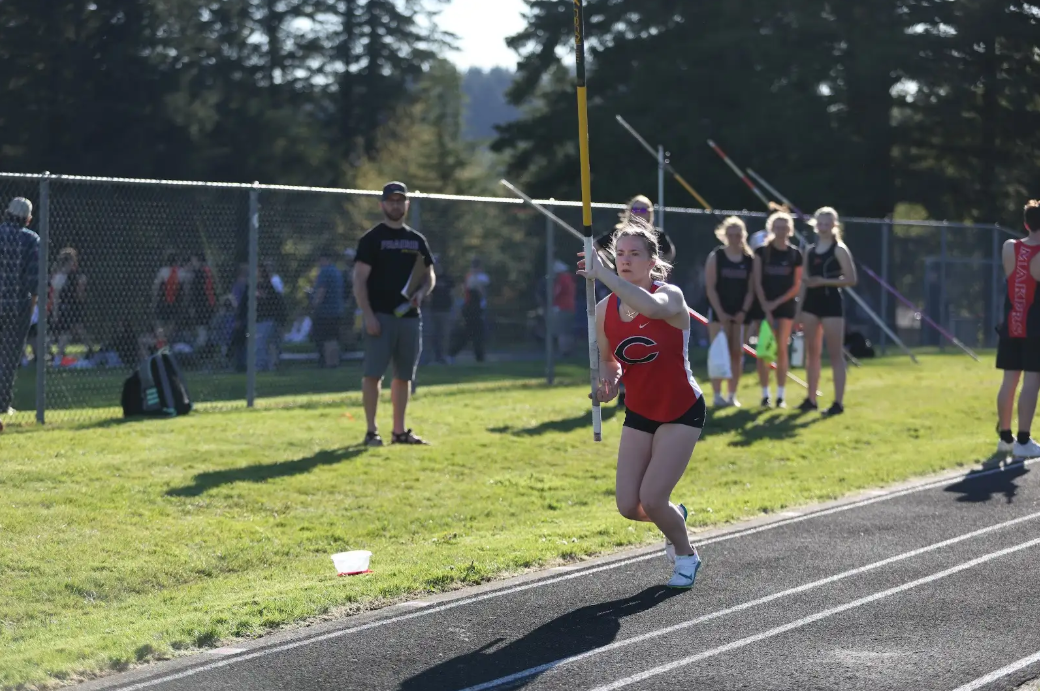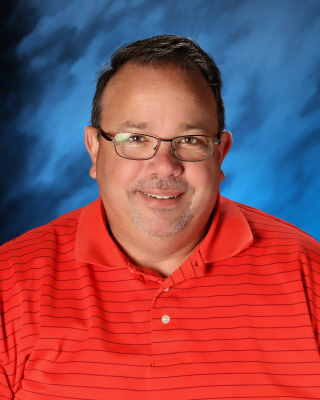
Camasonian 2020 Co-Editors-in-Chief Will Hansen and Chase Muro recently interviewed newly named CHS Principal Mr. Tom Morris. Here is what they found out about his interview process, his experience, and his plans for CHS:
- C: How did you feel the interview process went? Were you nervous or confident going into the interview?
- TM: “I was nervous. I haven’t interviewed for a job in about 25 years. I’ve been on lots of interview panels as the person interviewing people, but not in the hot seat. It was a little bit nerve racking. I was pretty confident going in, more so just because I have a lot of experience at Camas High School, and then recently being the interim-principal gave me some confidence and some experience with the job prior to applying for it.”
- C: We know that you have a lot of experience in the Camas School District. How has that prepared you for this moment?
- TM: “Having the history with what went down at Camas High School and in the district, and the relationships I’ve been able to build with teachers throughout those years I think is a big benefit to me and my position. Education is really about building relationships and trusting relationships. It’s kind of the first step in that, and I feel pretty good about having those relationships built, which means we can get past that stage in the process and continue moving forward.”
- C: What did you take away from being Interim-Principal? How did that help you prepare for the interviews?
- TM: “It was kind of getting a feeling for what the job is like, except for not really what it’s going to be like because it was so different in the position I came in. Coming in as the interim principal and then shortly thereafter not having any kids in the building. It’s really a different experience. It did give me some practice of things that I haven’t had to do before which is like weekly staff communications and communications to parents. I never had a huge interest in wanting to do that stuff, but now I find myself looking forward to usually Sunday night when I sit down and start drafting all these communications that I’m going to send out. I was always afraid I wouldn’t find things to put in there and struggle for what am I going to add, and now it’s like I don’t want to put too much in there and overwhelm people. It just kind of gave me that practice. It threw me right in, to where I had to do it and realized that it’s not as scary as it seems.”
- C: What do you plan to do from now until the start of next school year to prepare yourself for your new job?
- TM: “A lot of that is going to be, one we need to find a dean of students, so working with our current team to determine what our needs are for that position. Two, is trying to get the information as much as we can about what school might look like in the fall and then preparing our teachers and students for that. What things are we doing now might need to carry over, what things are we doing now that are working, what things are we doing now that aren’t working, and we need to toss them out, those sorts of things. Then, preparing for in-person school. We can’t expect that students are going to come in right away and go yeah give me hours of homework a night. I think our first step coming back is building those relationships with students in the classroom prior to jumping right into activities. It’s a big change. We know how hard it is for kids to transition from summer back into school in the fall. We’ve just had a very long summer. We’ve extended it over twice the amount it usually is so there’s going to be some time that we’re going to spend in building those relationships back with students.”
- C: What are your main goals/focuses/priorities for next year? How do you plan to achieve these things?
- TM: “One of our main goals as an admin team is to work more on social-emotional learning with our teachers and students at school. That’s kind of our big bang for next year. We’re going to look at how we can do that without impacting individual classrooms as much as possible. When we try to deliver stuff to say a grade level band, the best way to do that usually is like English or science because most everyone’s taking English or science class. So if we need to do something with junior students, all juniors are taking an English class so let’s use English. We continue to pull from those classes, try to create some system where we’re equitably sharing that time and then everybody is part of the delivery method of these lessons.”
- C: What do you want students to know about you and expect from you? What do you expect from students in return? What is your message to students?
- TM: “I think the message to students is feel free to come talk to me. I’m going to be out and visible as I can be. I’m actually a pretty funny, easy-going guy and I feel I’m pretty easy to talk to about things. I’m take everyone’s concerns seriously. I’m someone that really follows up things. From students, my expectation to them is that they feel open to come share with me or share with any other administrator or teacher with concerns or issues to address. I like to build relationships with people and I feel I do that quite well. I don’t want anyone to be afraid to come chat with me about anything”
- C: What do you bring to the table that is different from past principals at CHS?
- TM: “I think one of the biggest things I could bring from past principals is just my familiarity with our district, with our school, and our practices. Dr. Sejkora came in from another state and Mr. Marshall, when he came in prior to that, he came from another school in the area. It takes time to learn routines, traditions, learn people’s names, learn the history that the staff and school has, and I won’t have to do that. I’ve been living it for the last 25 years.”
- C: What have you been doing in your free-time? Have you adopted any new hobbies?
- TM: “I’ve been doing puzzles like they’re going out of style. We keep one puzzle up that’s complete, and then we start the next one next to it because if you have a puzzle, you want to look at it for a while. What puzzles do is it gives me the opportunity to keep my mind active in the puzzle, in the background, honestly, I’m thinking about school. I’m thinking about emails I need to write, I’m thinking about master schedules that I need to work on. I can do that in the back of my mind as I’m trying to put pieces together by color or by shapes or by sizes. It’s also been some good family time.”


































